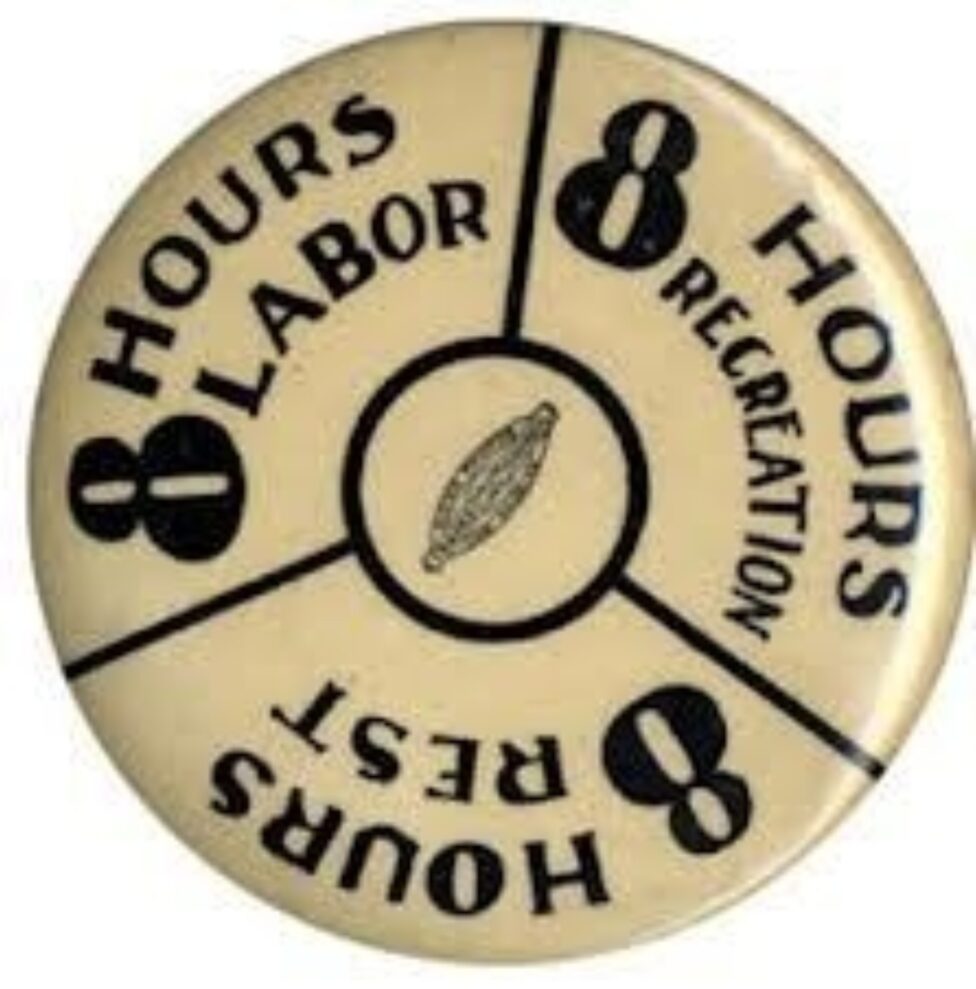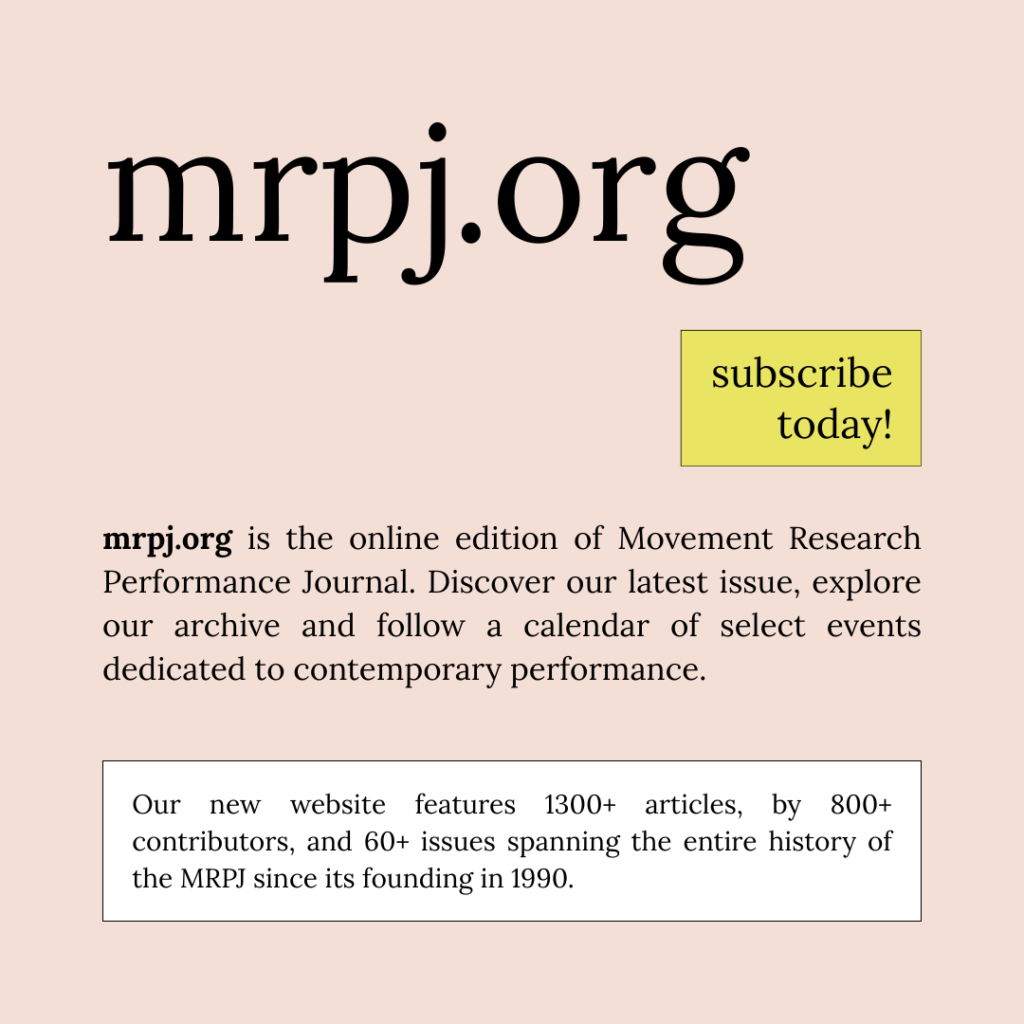Marissa: I am so sorry to read that your performance at New York Live Arts has been cancelled. What a wild turn of events since our interview! Would you like me to wait to publish our interview until the show is rescheduled?
Robert: The hurricane does not, did not, exist separately from the performance of E-V-E-R-Y-O-N-E. It’s part of the show. Our part is to see how so. Because this work comes out of nowhere (speaking for and from the libretto) it can neither be created nor destroyed, not even by a superstorm (can only be informed by). Above all, E-V-E-R-Y-O-N-E is a ‘spell’. An amulet. It’s an act of cosmogenesis-by-phones. The hurricane is just one small event in this work’s total waveform.
The performance has taken place in this way, as this part of the performance—as not having happened at NYLA and happening in every other way (like this letter to you). Our lead vocalist suggests that the work conjured the storm. Another performer noted that the time-elapse satellite photos of Sandy followed the formation of the ‘Belly Button’ section of the performance (see Daria’s diagrams).
As a choir we simply must learn from this experience and become more fully and carefully aware of the potency and scale and intimacy of our practices. We mean well (or we wouldn’t make a sound). Another way to look at it: as E-V-E-R-Y-O-N-E is one vast amulet (or one long algorithm working toward an all-inclusive well-being), who knows how much more destructive this storm would have been, or how less luminously jarring, had it hit without this safeguarding.
Which is to say, it would be perfectly in keeping to publish your article now, at this point in the performance. By the way, there is also the other show that didn’t happen as planned (as one of the strophes in E-V-E-R-Y-O-N-E states: “things are things that turn out otherwise”), i.e. the exhibition (called LOBBYING) (acts of re-English) that I was about to install in the lobby at NYLA to accompany the performance. Here are some images of this otherwise unmanifest commoning museum).
1. Detail of the kleroterion (the first democracy having realized beforehand that only selection of public official by chance would prevent further oligarchy, autocracy and plutocracy.)
2. The revolving shelving for the reading area that was to be set up (with the kleroterion in the background):
3. Titles of some of the texts filling the shelves:
Revolution at Point Zero: Housework, Reproduction, and Feminist Struggle, Silvia Federici
Women and the Gift Economy, ed. Genevieve Vaughan
Caliban and the Witch—Women, the Body and Primitive Accumulation, Silvia Federici
The Natural Economic Order, Silvio Gesel
Sacred Economics, Charles Eisenstein
Women, Community and the Hormel Strike of 1985-86, Neala Schleuning
New Money for a New World, Bernard Lietaer
Republic, Lost: How Money Corrupts Congress, Lawrence Lessig
Social Credit, C.H. Douglas
Aladdin’s Lamp, Gorham Munson
The 99%, the Editors at Alternet
The Web of Debt, Ellen Hodgson Brown
People Money: The Promise of Regional Currencies, Margrit Kennedy
Energy Plan of Western Man, Joseph Beuys
Comments on the Society of the Spectacle, Guy Debord
Diary of a Radical Cancer Warrior: Fighting Cancer and Capitalism at the the Cellular Level, Fred Ho
The Almost Perfect State, Don Marquis
The Chiapas Rebellion: The Struggle for Land and Democracy, Neil Harvey
The Right to Useful Unemployment and Its Professional Enemies, Ivan Illich
The Looting of America, Les Leopold
The End of Money and the Future of Civilization, Thomas H. Greco, Jr.
Just Give Money to the Poor, Joseph Hanlon
Regulating the Poor: The Functions of Public Welfare, Frances Fox Piven
So Rich, So Poor, Why It’s Hard to End Poverty in America, Peter Edelman
A People’s History of Poverty in America, Stephen Pimpare
Why Global Poverty—Think Again, Clifford Cobb & Philippe Diaz
The Theory of the Four Elements, Charles Fourier
Debt: The First 5,000 Years, David Graeber
The Many-Headed Hydra: Sailors, Slaves Commoners and the Hidden History of the Revolutionary Atlantic, Peter Linebaugh & Marcus Rediker
Debt and Economic Renewal in the Ancient Near East, ed. Michael Hudson
Women and the Pamphlet Culture of Revolutionary England, 1640-1660, Marcus Nevitt
Worlds Apart: The Market And Theater In Anglo-American Thought, 1550-1750, Jean-Christophe Agnew
Liberty Against the Law, Some Seventeenth Century Controversies, Christopher Hill
The Complete Works of Gerrard Winstanley, ed. Thomas Corns & David Loewenstein
The Pioneers of Land Reform: Thomas Spence, William Ogilvie, Thomas Paine, Unknown Author
Lawes Divine, Morall and Martiall, etc., William Strachey
The English Civil War: Papists, Gentlewomen, Soldiers, and Witchfinders in the Birth of Modern Britain, Diane Purkiss
Common Sense, Thomas Paine
The World Upside Down, Christopher Hill
The Digger Movement in the Days of the Commonwealth As Revealed in the Writings of Gerrard Winstanley, the Digger Mystic and Rationalist, Communist and Social Reformer, Lewis Henry Berens
The Magna Carta Manifesto, Peter Linebaugh
In the Shadow of the Oracle: Religion as Politics in a Suriname Maroon Society, H.U.E. Thoden van Velzen
Vac—The Concept of the Word In Selected Hindu Tantras, André Padoux
The Language Encounter in the Americas 1492-1800, Edward Gray & Norman Fiering
Empires of the Word: A Language History of the World, Nicholas Ostler
Dhvani: Nature and Culture of Sound, ed. S.C. Malik
The Conscious Ear, Alfred Tomatis
The Hidden Messages in Water, Masaru Emoto
Choreia: Pindar and Dance, William Mullen
Deep Listening, A Composer’s Sound Practice, Pauline Oliveros
God of the Word: Archetypes in the Consonants, Margaret Magnus
Healing with Form, Energy and Light, Tenzin Wangyal Rinpoche
Spaces Speak, Are You Listening, Barry Blesser& Linda-Ruth Salter
NÄtya ÅšÄstra, Bharatamu
4. One of the graphic works
5. More graphics
6. A posting of the first English-written laws in the New World, (25 of 37 offenses prescribing the death penalty!) (and a footnote)
7. The Papal Bull that got the Age of Discovery: “claiming all that you see as your own” rolling
8. Of course the 4-hour day Commons Choir button (and it’s 19th century antecedent to helping end the 16-hour workday and child labor)
9. And finally, this call.
Thank you for your wonderful attention!
Luminously, Robert
Marissa: Thank you for the thorough response! Would you like me to post it as an interview?
Daria: I think that would be great. Thanks!














